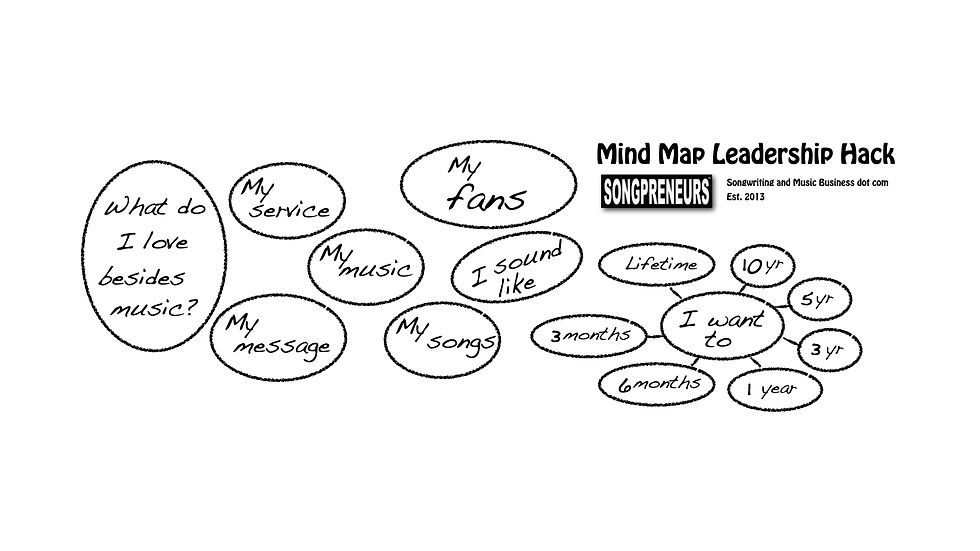Music Modernization Act Reflections and Insights
- Songpreneurs HQ

- Aug 2, 2018
- 5 min read
Updated: Dec 14, 2019
The songwriter advocacy world has been heating up this past week as NSAI has mobilized all hands to oppose a recent amendment proposed by SESAC to the Music Modernization Act, and today an agreement has been reached.
What does this mean for the average songwriter, and what can we do about it?
Firstly, it’s important to note that we at Songpreneurs are a non-partisan, non-political, educational group helping songwriters successfully work as entrepreneurs in the new music business.
It is not our practice to tell people what to do, or how to think in regards to legislation.
However, as educators, we have prepared a few tools and resources that you can use to make up your own mind about whether to support or oppose certain measures based on your personal self-interest.
Operating according to one’s own self-interest might not always be the popular stance, but it’s important to consider that there is a reason doing what’s good for yourself is also good for the group.
Like airplane logic™ says, when you are in a crisis emergency, it’s absolutely necessary to put on your own oxygen mask before trying to help others.
When you try to put others before yourself, you endanger the whole system.
Why? If you don’t put on your own mask first, you could pass out before you help the child who is dependent on you for help, and then you’re both out of commission.
That’s not to say you put on your mask and then stop to do your nails before helping others, either.
But folks, we’re facing a crisis in the music world, and it’s not just about the MMA, SESAC or all the other organizations pushing a narrative right now.
Let’s stop and consider the purpose for legislation in the music space, and see what is actually happening, and while we’re at it, let’s test our own knowledge on these subjects to make sure we know what we’re talking about when we’re asked to post in support of this or that measure.
You can try to research and find these answers online, but be advised, Wikipedia is NOT an accurate place to find information regarding music publishing.
In the meantime, think about how wonderful the internet would be if the first search terms delivered were always academically verified facts, accompanied by references, images, and links to multiple points of view when available.
Instead, what we currently find is a system where top hits are purchasable, and certain points of view, including facts are completely obscured or even eliminated from being found.
If the duty of the search providers is to make information accessible, then how come accurate information is so hard to come by? And when can we regulate that, please?
Here’s a self-quiz:
Please use every available tool to locate the accurate answers, and then post your answers in the comments using the hash tag #songwritervoices, if you like.
1. What are the two major pieces of government regulation that prevent songwriters and music publishers from being able to set their own rates for the music they create and own?
a) Consent decrees
b) Compulsory licenses
c) Public performance royalty
d) DiMA
e) Mechanical rights
2. A consent decree prohibits these two companies from licensing mechanical royalties:
a) ASCAP
b) BMI
c) SESAC
d) NMPA
e) NSAI
f) SONA
3. Only one of these performing rights organizations can currently license all the rights needed for all categories of streaming online:
a) ASCAP
b) BMI
c) SESAC
d) NMPA
e) NSAI
f) SONA
4. A compulsory license exists for music almost nowhere else in the world except in the United States:
a) True
b) False
5. The MMA includes a provision that will make it impossible to sue digital music services in the future for previous acts of willful copyright infringement:
a) True
b) False
6. The MMA would set songwriter and publisher digital streaming mechanical royalty rate at _____ per unit.
a) $1
b) 50 cents
c) 9.1 cents
d) 1 cent
e) Less than 1 cent
7. YouTube owner Google, DiMA Member controls how much of the US search traffic market?
a) 60%
b) 10%
c) 90%
d) 51%
8. The consent decrees were originally placed on the PROs to protect against:
a) Anti-trust monopoly behavior
b) Rudeness
c) Cheating
d) Pollution
9. The following companies' profits are directly derived from income generated from songwriters royalties based on their success or failure in negotiation on their behalf:
a) ASCAP
b) BMI
c) SESAC
d) NMPA
e) NSAI
f) SONA
Here are a couple of other facts for your consideration:
The NMPA’s David Israelite said in Nashville at the AIMP meeting that an optimal condition for music owners would be to do away with both consent decrees and compulsory licensing
The database owned by the Copyright Office (the taxpayers) could be adapted to allow music creators to specify upon registration their own preference for digital streaming rates, as well as other types of licensing so that owners maintain control of their goods, and users have access to licensing information
SESAC is the only US based major PRO that is not bound by government consent decrees
NMPA founded and owned Harry Fox Agency (HFA) until 2015 when it sold to SESAC / Blackstone
NMPA was founded in 1917 with the express purpose of protecting the interest of music publishers
The statutory mechanical royalty rate stayed at 2 cents per unit until 1978 when songwriter Hoyt Axton successfully lobbied Congress to raise it
If the statutory royalty rate were raised to match inflation, it would currently be around 50 cents per unit. Instead, it has fallen to less than one penny for 56.5% of music consumed in 2017. [Source RIAA https://www.riaa.com/u-s-sales-database/]
Digital streaming services are supposed to provide a legal alternative to music consumers, not control the price of the good they provide
Do you really want to support music creators and artists, and by extension, protect privacy rights of consumers?
Buy physical products, digital download and album formats.
Streaming supports a materialistic advertising based economy where your privacy rights are rendered void, and the music you are trying to access is delivered at a very low audio quality, simply so that by accessing it online, you are providing a constant surveillance stream to advertisers.
Do you like being told what to do?
Do you like giving up your personal data every time you access music (or anything else) online?
Or do you think that the person who creates a good should be able to set his or her own rate for that good or service, and charge what the market will allow?
Do you think it’s fair to allow a commodity to be devalued for 20 years before allowing the market to decide what it’s worth?
Or do you think artists and creators are entitled to transparent, fair, respectful, oversight of their own products, understanding that music is an important cultural commodity?
Let’s be careful not to follow the leader over the cliff, and make sure we understand what is at stake when we’re making our opinions known on the digital space.
Songpreneurs applauds the collaborative efforts of everyone in the music space (including ASCAP, BMI, SESAC, NSAI, NMPA, SONA, and all of the #songwritervoices striving to connect with purpose, as well as Sound Exchange, AFM, SAG/AFTRA, RIAA and DiMA) for working toward sustainable solutions for the current creative labor crisis.
It is in the spirit of cooperation that we will succeed in championing the freedom of expression, and the responsibility to steward that expression toward a greater realization of shared common good and goodwill. We will triumph for this and future generations of creative workers i.e. artists and the shapers of culture.
Now we must get to work building our own careers, because streaming royalties for non-performing songwriters are currently not sustainable wages, and unless you can survive on less income, you’d better figure out how you’re going to be an entrepreneur, too.
Opt in to songwriter voices email list here.
#songwriter #advocacy #NSAI #NashvilleSongwritersAssociationInternational #MusicModernizationAct #SESAC #agreement #Songpreneurs #legislation #brandyou #MMA #Wikipedia #DiMA #consentdecrees #consumers #government #regulation #SongwriterVoices #rates #compulsorylicense #statutory #mechanical #ASCAP #BMI #NMPA #NationalMusicPublishersAssociation #SONA #SongwritersofNorthAmerica #infringement #copyright #Google #antitrust #monopoly #negotiation #DavidIsrealite #DavidIsraelite #AIMP #RIAA #digitaldownload #album #physicalsales #AFM #AFTRA #SAG #SoundExchange























Komentar